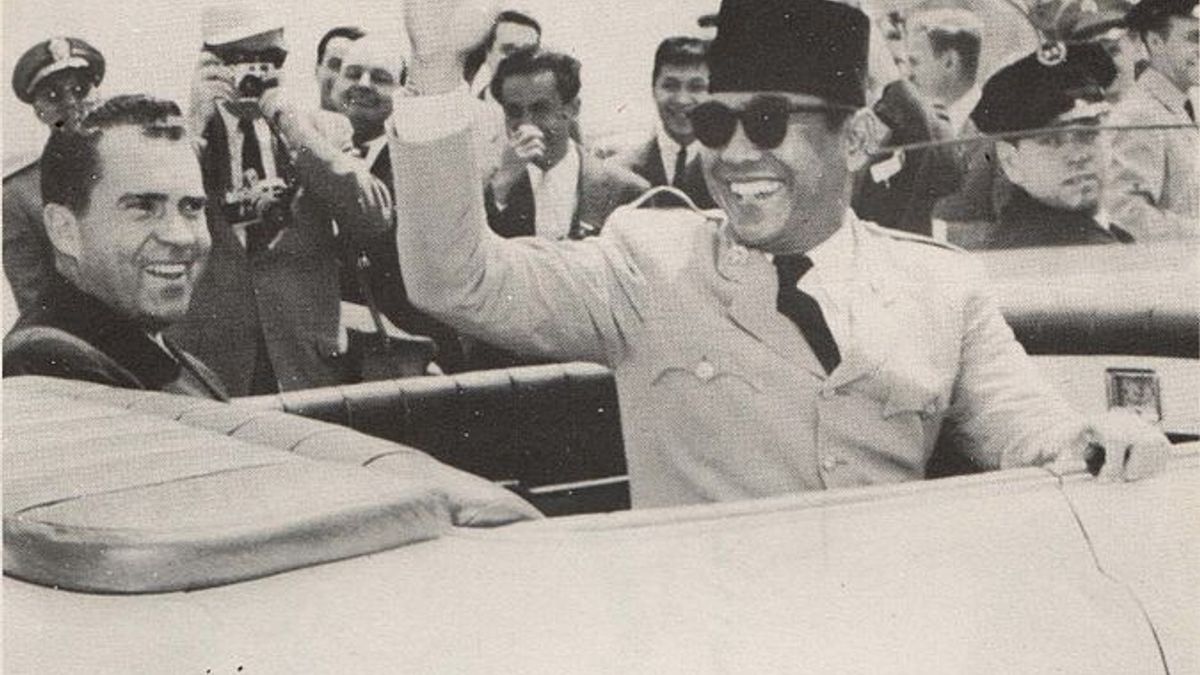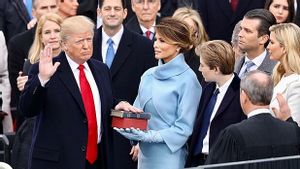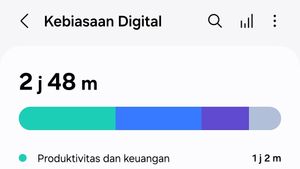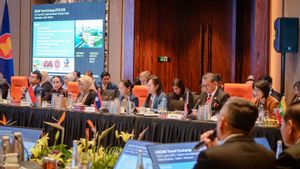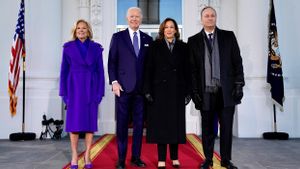JAKARTA - Indonesia's economy after independence is not doing well. War, past debts, the concept of development, to inflation are the origins. Moreover, economic development is not a top priority. The Indonesian people also suffered. Therefore, Soekarno really understood the suffering of his people. Instead he was reluctant to take a high salary. The salary tends to be low. He even often borrowed money from his aide. This condition made him known as one of the poorest heads of state.
The period of the independence revolution (1945-1949) was a period full of struggle for the Indonesian people. Politically, Indonesia is already independent. But not economically. Indonesia's dependence on foreign companies is a never ending series of chapters.
The condition was made worse because of the revolutionary war, inflation, and the concept of development chosen by the Indonesian government. However, this does not mean that Indonesia does not have plans to increase economic development. The confiscation of assets and the nationalization of foreign companies had become a lesson. Even if it's risky.
The takeover was believed to be a savior. In fact, far away from the fire. The Indonesian economy, which should have accelerated, has declined sharply due to various problems. Lack of experts and production tools are some of them.

Soekarno also tried to take a stand by inflaming the narrative: politics as commander-in-chief. The slogan surfaced during the government of Guided Democracy (1959-1965). The goal is none other than so that economic development can develop rapidly. Indonesia can shine in the eyes of the world because of it. In fact, the narrative is nothing more than mere rhetoric. In the field, economic problems have never been the main priority of the Indonesian government.
“It should be stated that the de jure implementation of Guided Democracy is marked by the enactment of a Presidential Decree. Within the framework of Guided Democracy Soekarno tried to introduce a system of socialism which he called: Indonesian-style socialism. Within the slogan of socialism, there is a lot of nationalist rhetoric aimed at creating economic transformation and developing the modern sector.”
“In such a situation, what used to be the goals of politicians who hold a national economic view, are then translated into political slogans. Because of this, less and less attention is paid to the economic and related fields, thus preventing the effective implementation of the Five-Year Development Plan,” said Bondan Kanumoyoso in the book Nationalization of Dutch Companies in Indonesia (2001).
Ambitious and Unrealistic
During the Guided Democracy period, the steps taken by the government tended to be ambitious and unrealistic. More and more problems arise when the government also changes the position of Bank Indonesia. Where, previously, Bank Indonesia was able to freely make its own policies without any interference from the authorities, becoming under the hands of those in power.
Bank Indonesia immediately printed as much money as possible. The money was used a lot to finance ambitious projects of the Indonesian government. They built many lighthouse projects, agitated and propaganda against Malaysia, nationalized foreign companies, and purchased combat equipment. This action clearly invites problems: inflation soars. All Indonesian people must bear the impact: poverty.

“The mid-1960s was a bleak period for the Indonesian economy. Production and investment levels in the main sectors have declined since 1950. Real per capita income in 1966 is very likely to be lower than in 1938. The industrial sector which accounts for only about 10 percent of gross domestic product is faced with a serious problem of capacity unemployment. ”
"At the beginning of the decade, the state budget deficit reached 50 percent of the country's total expenditure, export revenues declined greatly, and during 1964-1966 hyperinflation hit this country with the result that the economy was paralyzed," explained Anne Booth and Peter McCawley in the book Economics of the New Order (New Order Economics). 1986).
Big Brother's Small Salary
Bung Karno knew for sure every problem that plagued Indonesia. He has high empathy for the suffering experienced by all Indonesian people. Therefore, the suffering of the people due to economic development not only makes him concerned, but also gives him an idea that raising a nation is a complex job.
According to Bung Karno, getting the community out of the crisis doesn't just have to be helped in matters of the stomach. People should also be given food for their souls. Big Brother tries to be an example. He wants to be with the people. The steps he took were quite large. Bung Karno never expected a big salary while serving as the number one person in the archipelago.
He only received 220 US dollars per month. This amount is clearly not enough to meet the needs of his family. In fact, less. He also equated his financial condition during his time as president was like the struggle in Bandung. In other words: he is equally in poor condition.
Once upon a time, Bung Karno himself had to borrow money from his own aide. Bung Karno was not ashamed to say it. He also calls himself one of the poorest presidents in the world. instead of having excess savings, not even the house.
"I don't have my own house. No land. No savings. More than once I had no money left for my household expenses. In one country, our Ambassador was forced to buy pajamas for me. The president's sole pajama was torn. The state provides free housing, free electricity consumption, four official cars and three in the garage for state guests and they bought my uniform."

"But I'm the only president in the world who doesn't have a home of his own. Recently my people raised funds to build a building for me, but the next day I forbade it. This goes against my stance. I don't want to take anything from my people. I just wanted to give them,” said Bung Karno as written by Cindy Adams in Bung Karno's book: The Indonesian People's Tongue Connector (1965).
The small salary that Bung Karno received actually made people around him respectful. Bung Karno's aide, Bambang Widjanarko, was one of them. Bung Karno even considered as a role model. Even in financial difficulties, Bung Karno was never absent from thinking about the fate of his subordinates.
Bung Karno often gave extra money from his personal pocket to his aides for various purposes. He is well aware that his subordinates' income is far below his. It's the same as Bung Karno, they only rely on their monthly salary to support their children and wives.
"It is true what Bung Karno said, at that time we only lived from the salary we received every month. But we are all aware that the country's economic situation is indeed difficult and everyone is suffering the same way."
“The work environment, both superiors and subordinates as well as friends, all live a simple life. So the heavy economic pressure is lighter and with all our hearts we all work to carry out our respective duties," concluded Bambang Widjanarko in the book Sewindu Near Bung Karno (1998).
*Read other information about HISTORY or read other interesting articles from Detha Arya Tifada.
The English, Chinese, Japanese, Arabic, and French versions are automatically generated by the AI. So there may still be inaccuracies in translating, please always see Indonesian as our main language. (system supported by DigitalSiber.id)
